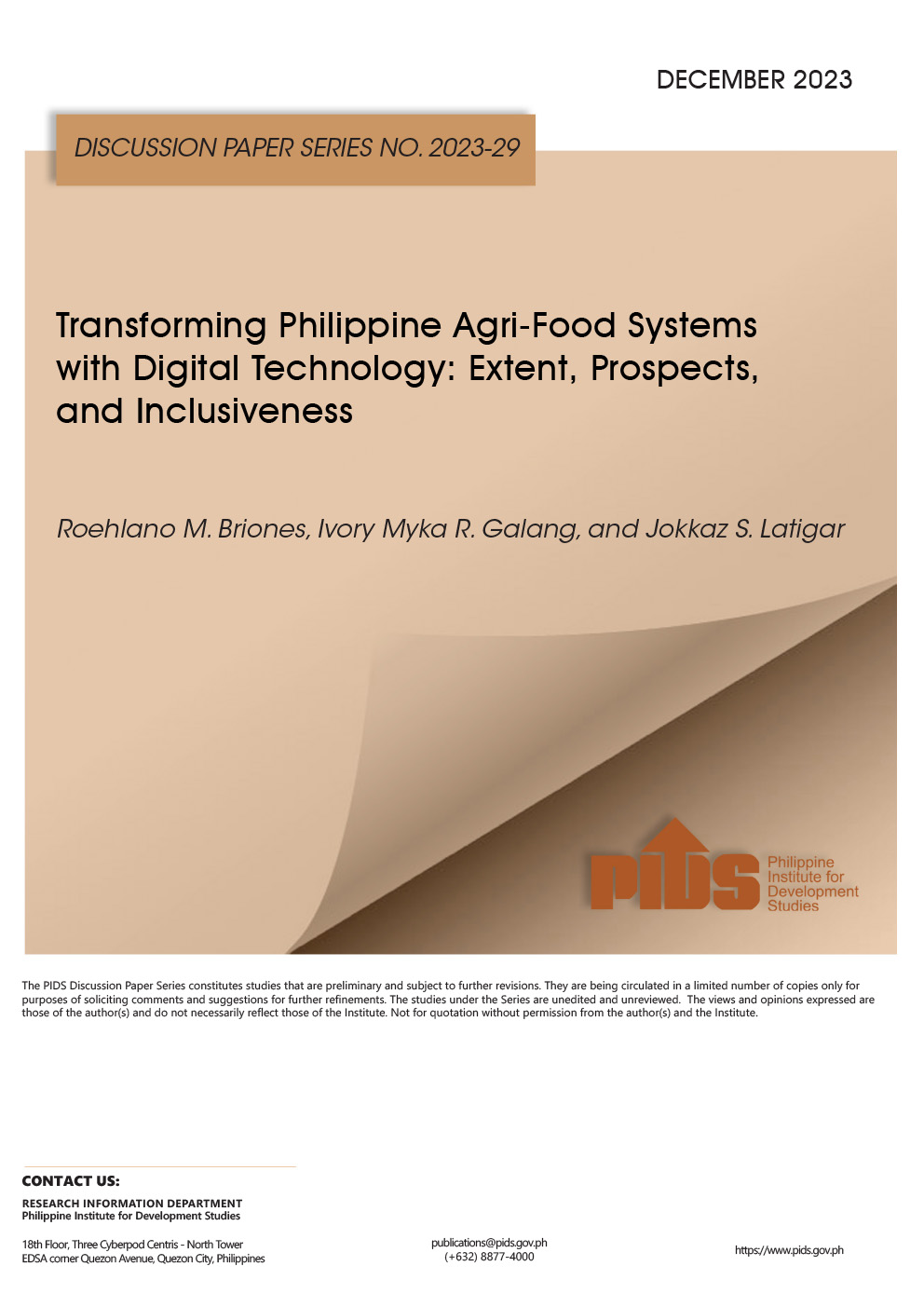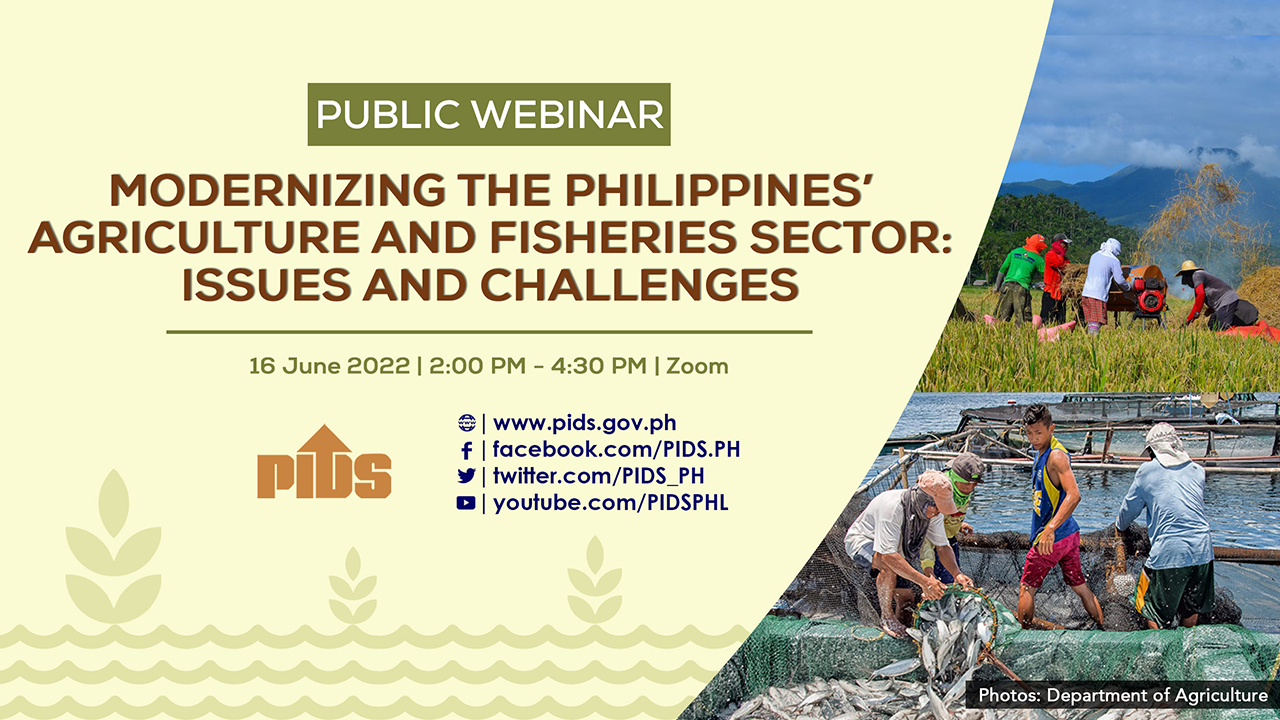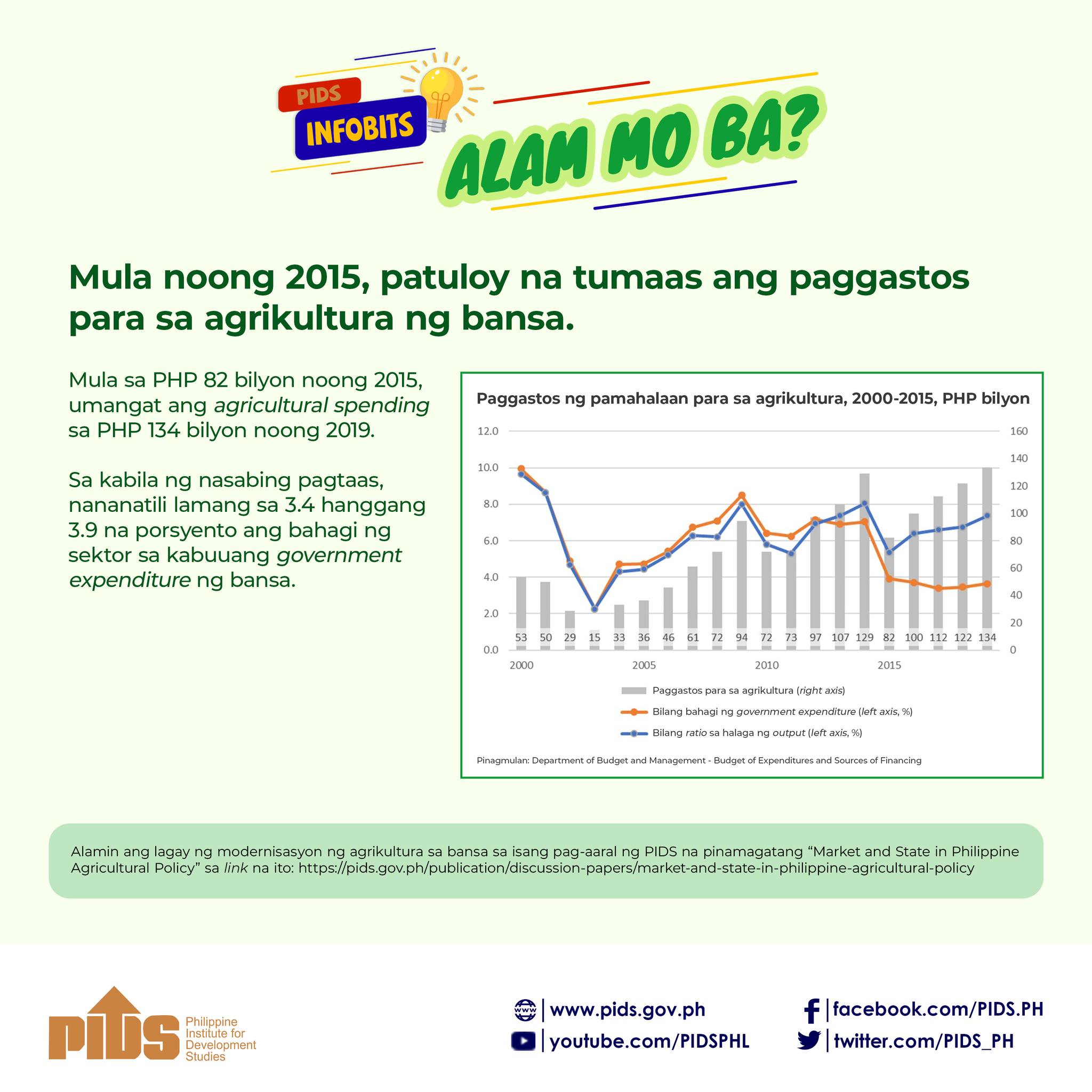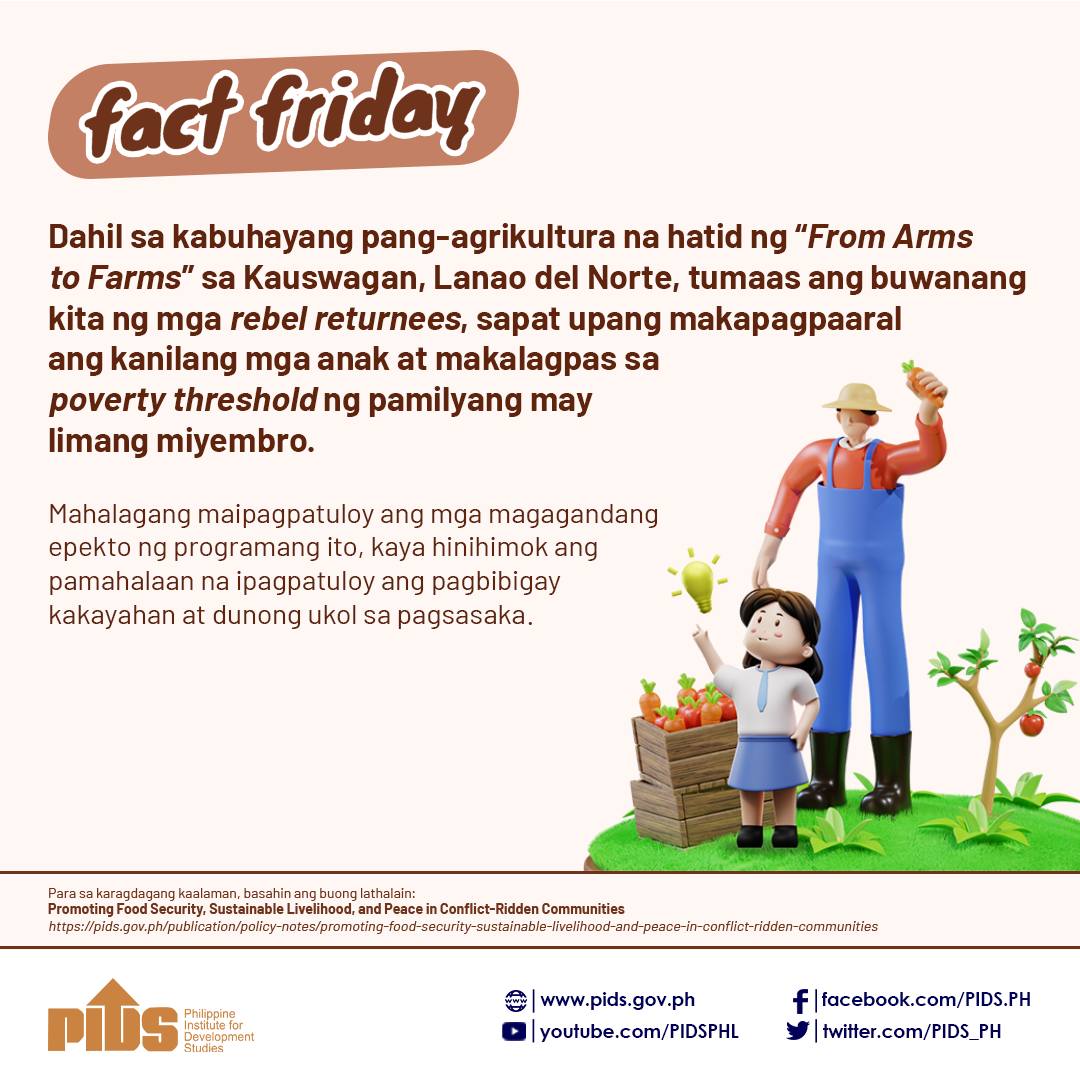
State think tank Philippine Institute for Development Studies (PIDS), in partnership with the Central Luzon State University (CLSU), will conduct a forum on the assessment of the irrigation and postharvest facilities, two of government's flagship agriculture projects, on March 30, 2016 at the CLSU Campus in the Science City of Munoz, Nueva Ecija.
One of the papers to be presented is an evaluation of irrigation facilities conducted by a multidisciplinary team of PIDS consultants. Arlene Inocencio, former PIDS research fellow and currently professor at the De la Salle University-Manila, will present the findings and recommendations of her team related to the technical/physical and institutional aspects of irrigation management and development for national and communal irrigation systems.
The irrigation sector in the country has long been facing issues of underdevelopment, mismanagement, and environmental degradation. Despite receiving a third of the total budget for agriculture, the sector has fallen short in delivering what is expected from it. The PIDS study, which evaluated 66 communal irrigation systems and 22 national irrigation systems in 16 provinces in Luzon, offers an inclusive approach to tackle the complex issues that hound the irrigation sector. Specifically, the paper proposes a systematic approach to water allocation and distribution, an integrated development plan, and a review of existing policies and regulations that possibly hamper the growth of the irrigation sector.
For the second presentation, findings on the assessment of the government's programs to address the problem of postharvest losses incurred in the various stages of food supply chain such as on-farm postharvest activities, processing, logistics, marketing, and trading will be presented. The PIDS paper by Nerlita Manalili, Kevin Yaptenco, and Alessandro Manilay, assessed the effectiveness of the rice processing centers and food terminals in the provinces of Pangasinan, Davao del Sur, Bohol, and Iloilo.
The PIDS study notes that overall, the postharvest facilities in these provinces have positive impact in addressing postharvest losses and improving the marketing system for rice and high-value crops. For example, the authors computed the total gain in farmers' income due to higher buying prices at around PHP13.9 million. Without these facilities, the authors contended that farmers could easily lose some PHP 286.96 million.
This policy research forum is part of the Institute's program to disseminate findings from studies conducted to evaluate the effectiveness and impacts of key government programs and projects. Spearheaded by the National Economic and Development Authority and the Department of Budget and Management, these impact evaluation (IE) studies were conducted to promote greater transparency and accountability in government. Through these IE studies, policymakers and program implementers will have concrete basis in determining whether a particular program is achieving its intended outcomes or whether it needs to be fine-tuned or discontinued.
According to PIDS President Gilberto Llanto, CLSU—as one of the country’s premier academic and research institutions for agriculture—is the best partner in conducting a forum to disseminate the results of these studies to stakeholders in Central Luzon, where most of the country’s rice supply is produced. ###
One of the papers to be presented is an evaluation of irrigation facilities conducted by a multidisciplinary team of PIDS consultants. Arlene Inocencio, former PIDS research fellow and currently professor at the De la Salle University-Manila, will present the findings and recommendations of her team related to the technical/physical and institutional aspects of irrigation management and development for national and communal irrigation systems.
The irrigation sector in the country has long been facing issues of underdevelopment, mismanagement, and environmental degradation. Despite receiving a third of the total budget for agriculture, the sector has fallen short in delivering what is expected from it. The PIDS study, which evaluated 66 communal irrigation systems and 22 national irrigation systems in 16 provinces in Luzon, offers an inclusive approach to tackle the complex issues that hound the irrigation sector. Specifically, the paper proposes a systematic approach to water allocation and distribution, an integrated development plan, and a review of existing policies and regulations that possibly hamper the growth of the irrigation sector.
For the second presentation, findings on the assessment of the government's programs to address the problem of postharvest losses incurred in the various stages of food supply chain such as on-farm postharvest activities, processing, logistics, marketing, and trading will be presented. The PIDS paper by Nerlita Manalili, Kevin Yaptenco, and Alessandro Manilay, assessed the effectiveness of the rice processing centers and food terminals in the provinces of Pangasinan, Davao del Sur, Bohol, and Iloilo.
The PIDS study notes that overall, the postharvest facilities in these provinces have positive impact in addressing postharvest losses and improving the marketing system for rice and high-value crops. For example, the authors computed the total gain in farmers' income due to higher buying prices at around PHP13.9 million. Without these facilities, the authors contended that farmers could easily lose some PHP 286.96 million.
This policy research forum is part of the Institute's program to disseminate findings from studies conducted to evaluate the effectiveness and impacts of key government programs and projects. Spearheaded by the National Economic and Development Authority and the Department of Budget and Management, these impact evaluation (IE) studies were conducted to promote greater transparency and accountability in government. Through these IE studies, policymakers and program implementers will have concrete basis in determining whether a particular program is achieving its intended outcomes or whether it needs to be fine-tuned or discontinued.
According to PIDS President Gilberto Llanto, CLSU—as one of the country’s premier academic and research institutions for agriculture—is the best partner in conducting a forum to disseminate the results of these studies to stakeholders in Central Luzon, where most of the country’s rice supply is produced. ###












